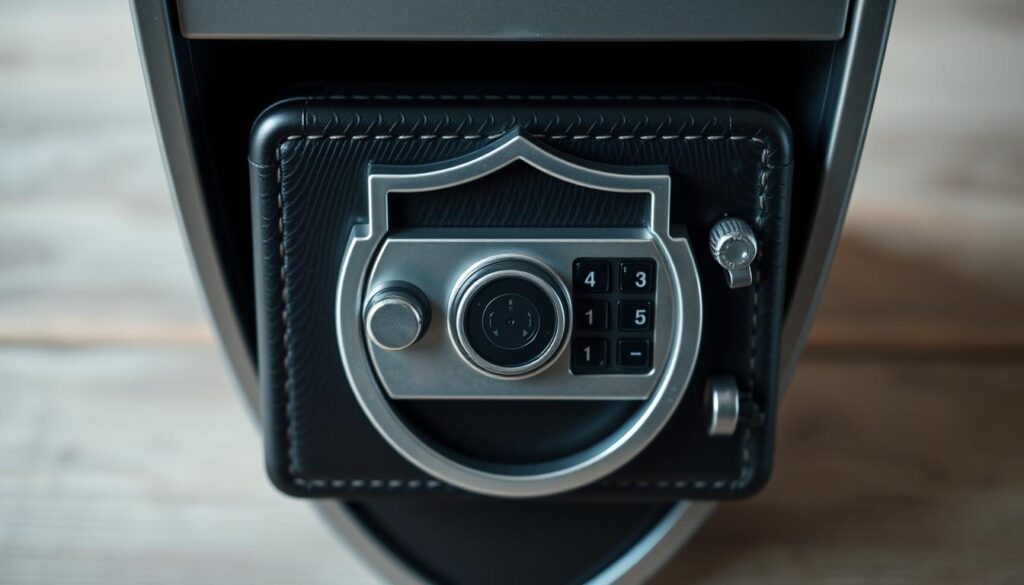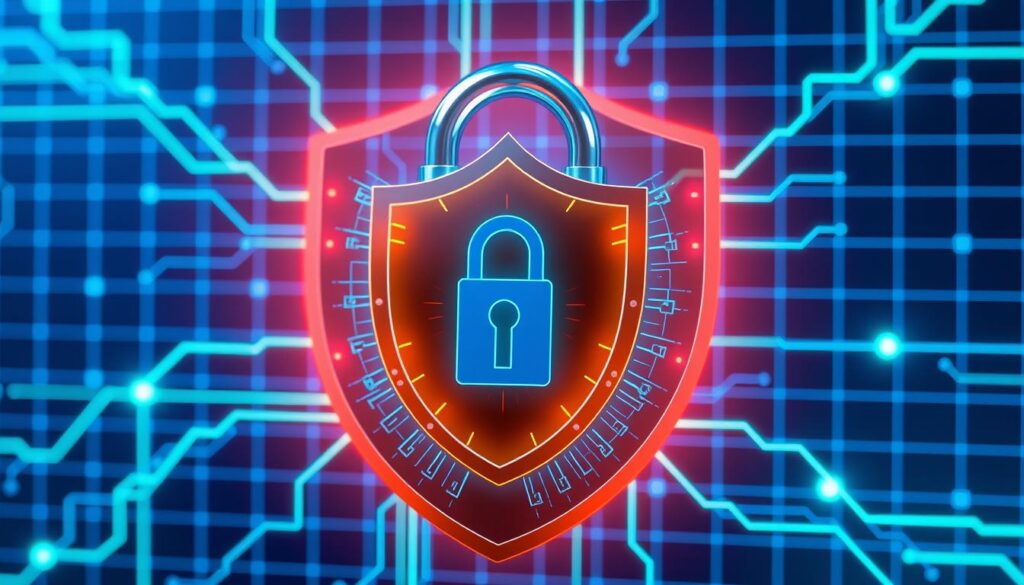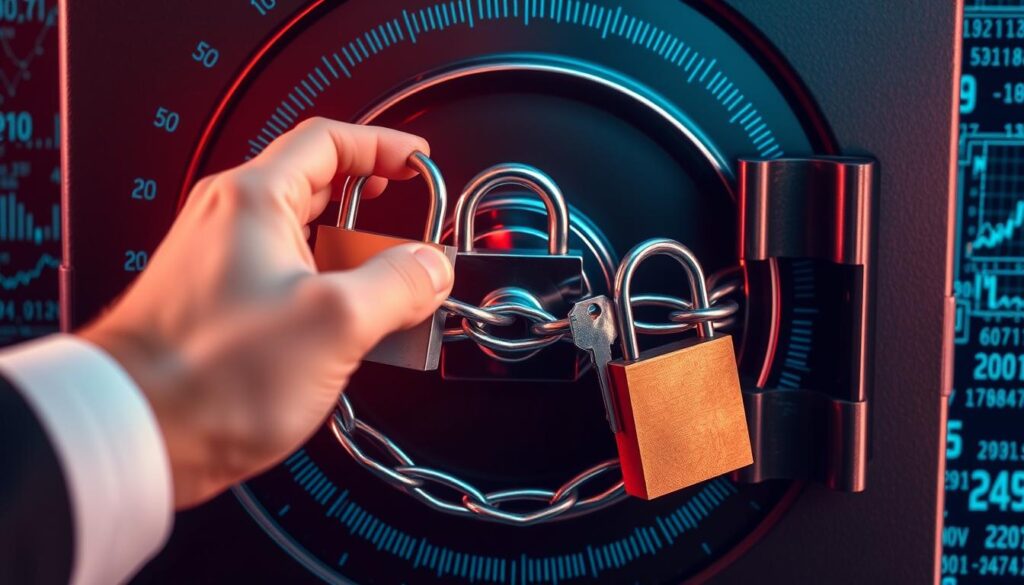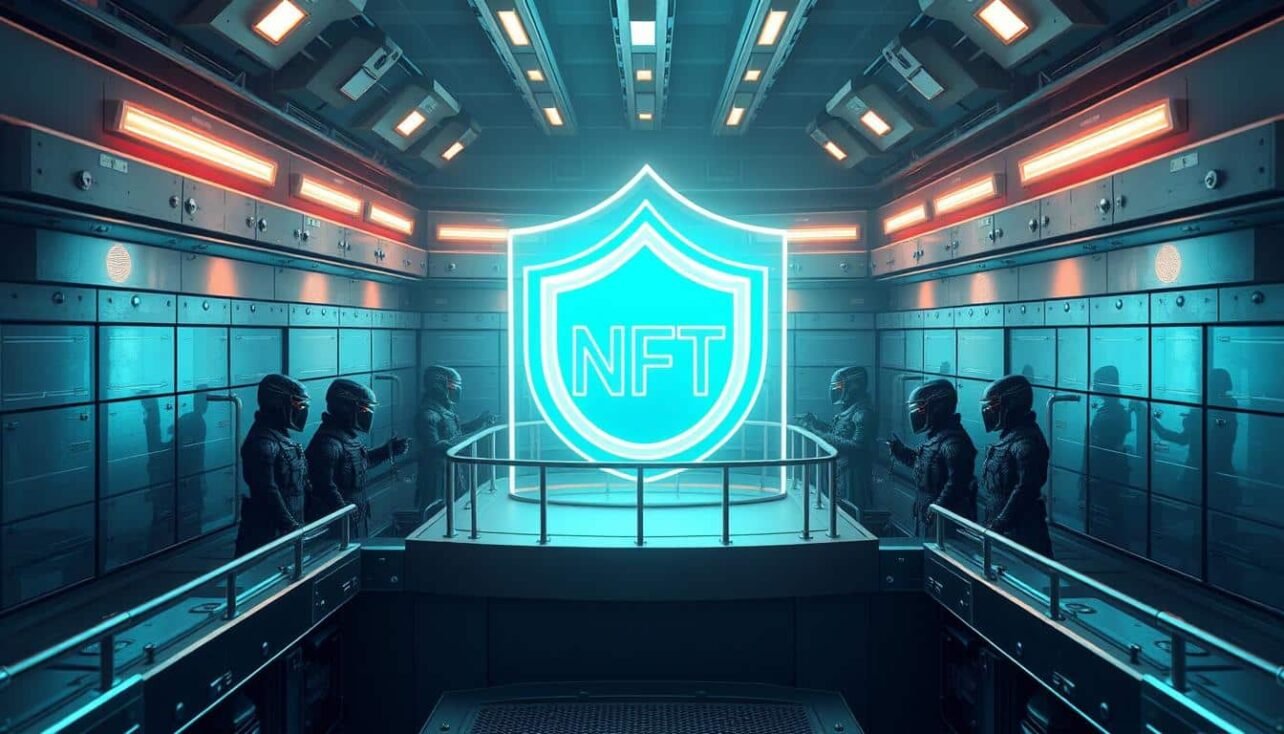In the rapidly evolving world of non-fungible tokens (NFTs), safeguarding your digital assets has become paramount. As the NFT market continues to flourish, it has also attracted the attention of cybercriminals and scammers. From phishing attacks to wallet breaches, the risks associated with NFT ownership are real and growing. In this comprehensive guide, we’ll explore the essential security measures you can take to protect your NFTs, secure your crypto wallet, and authenticate your digital assets with confidence.
Whether you’re a seasoned NFT collector or just starting your journey into the world of digital art and collectibles, this article will equip you with the knowledge and tools to navigate the NFT security landscape and safeguard your valuable investments. From understanding the fundamentals of NFT ownership and custody to recognizing common scams and implementing best practices for wallet security, we’ve got you covered. Dive in and unlock the secrets to protecting your NFTs in the digital realm.
Key Takeaways
- Understand the fundamentals of NFT ownership and custody to mitigate risks.
- Secure your crypto wallet with strong passwords, two-factor authentication, and cold storage.
- Verify the authenticity and ownership of NFTs before making purchases.
- Stay vigilant against common NFT scams, such as phishing and social engineering attacks.
- Explore custody solutions and services to enhance the protection of your NFT portfolio.
Introduction to NFT Security
As the world of non-fungible tokens (NFTs) continues to evolve, the importance of NFT security has become increasingly paramount. NFTs have revolutionized the way we own and trade digital assets, but they also come with unique security challenges that NFT holders must be aware of to safeguard their digital investments.
One of the primary concerns in the NFT space is the threat of theft and unauthorized access to NFT holdings. Cybercriminals have been known to target NFT wallets, exploiting vulnerabilities in the blockchain infrastructure or using social engineering tactics to gain access to private keys and steal valuable NFTs.
Another significant issue is the risk of NFT ownership disputes, where the true ownership of an NFT may be called into question. This can happen due to factors such as fraud, forgery, or even technical glitches in the NFT minting and trading process.
To address these challenges, it is crucial for NFT enthusiasts to understand the fundamentals of NFT security, including the importance of secure wallet management, the role of public and private keys, and the common threats that NFT holders may face.
By staying informed and proactively implementing best practices for NFT security, NFT holders can protect their digital assets and ensure the long-term integrity of the NFT ecosystem.
Understanding NFT Ownership and Custody
Understanding the concepts of NFT ownership and custody is crucial for securing your digital assets. At the heart of NFT ownership lies the interplay between public and private keys, as well as the various crypto wallets and storage solutions available for safeguarding your NFTs.
Public and Private Keys
Every NFT is associated with a unique public key, which serves as the public address for your digital asset. This public key is like a bank account number, allowing others to send NFTs to you. However, the real key to accessing and managing your NFTs is the private key, a secret code known only to you. Without this private key, you cannot transfer, sell, or interact with your NFTs in any way.
Crypto Wallets and Storage
To securely store and manage your NFTs, you’ll need to use a crypto wallet. Crypto wallets come in various forms, including software wallets, hardware wallets, and online wallets. Each type of wallet has its own advantages and disadvantages, so it’s important to choose the one that best fits your needs and security preferences.
- Software wallets, such as MetaMask, are convenient but may be more vulnerable to online threats.
- Hardware wallets, like Ledger or Trezor, offer an additional layer of security by storing your private keys offline.
- Online wallets, provided by NFT marketplaces, can be easy to use but require you to trust the platform with your NFT custody.
Ultimately, the choice of wallet and storage solution will depend on your level of technical expertise, the value of your NFT collection, and your overall security concerns.
https://www.youtube.com/watch?v=Uey4GP8hQDA
“Proper custody and storage of your NFTs is paramount to protecting your digital assets.”
Common NFT Scams and Threats
The rapidly growing NFT market has attracted a wide range of investors, but it has also become a prime target for various scams and threats. Navigating the NFT ecosystem requires vigilance to avoid falling victim to NFT scams, NFT threats, and NFT fraud.
One of the most common NFT scams is phishing attacks, where scammers create fake websites or social media accounts impersonating legitimate NFT projects or marketplaces. These scams aim to trick users into revealing their login credentials or private keys, enabling the attackers to steal their NFTs and cryptocurrency.
Another threat is the “rug pull,” where the creators of an NFT project suddenly abandon the project, often after raising significant funds from investors. This leaves the investors with worthless NFTs and no way to recover their investments.
- Counterfeit NFTs are another major issue, as scammers may create and sell fake versions of valuable NFTs, deceiving buyers.
- Insider trading and market manipulation within the NFT ecosystem can also lead to significant losses for unsuspecting investors.
To mitigate these risks, it is crucial to thoroughly research any NFT project, verify the authenticity of the NFTs, and only use reputable cryptocurrency exchanges and NFT marketplaces. Additionally, safeguarding your private keys and implementing strong security measures for your crypto wallet can help protect your NFT investments.
“The NFT market is still in its early stages, and as with any emerging technology, it is crucial to be aware of the potential risks and take proactive steps to protect your investments.”
By understanding the common NFT scams, NFT threats, and NFT fraud, you can make informed decisions and take the necessary precautions to safeguard your NFT portfolio.
Securing Your Crypto Wallet
As the gateway to your NFT holdings, securing your crypto wallet is crucial to safeguarding your digital assets. In this section, we’ll explore the best practices for wallet security, including the use of hardware wallets and cold storage solutions, to minimize the risk of unauthorized access and theft.
Best Practices for Wallet Security
Maintaining the security of your crypto wallet requires a multi-layered approach. Here are some recommended best practices:
- Use a strong, unique password for your wallet and enable two-factor authentication (2FA) to add an extra layer of protection.
- Regularly back up your wallet’s private keys and seed phrases, and store them securely offline.
- Keep your wallet software up-to-date to ensure you’re protected against the latest security vulnerabilities.
- Avoid accessing your wallet on public Wi-Fi networks, as they can be vulnerable to eavesdropping and data theft.
Hardware Wallets and Cold Storage
For the ultimate in crypto wallet security, consider using a hardware wallet or a cold storage solution. Hardware wallets are physical devices designed to store your private keys offline, making them much less susceptible to online threats. Cold storage, on the other hand, involves keeping your digital assets completely disconnected from the internet, typically by storing your private keys on a USB drive or paper wallet.
| Feature | Hardware Wallet | Cold Storage |
|---|---|---|
| Online Connectivity | Offline | Offline |
| Security | High | Highest |
| Convenience | Moderate | Low |
| Ease of Use | High | Moderate |
By implementing these crypto wallet security measures and considering hardware wallets or cold storage solutions, you can significantly reduce the risk of your NFTs being compromised and protect your digital investments.

How to Secure Your NFTs
Securing your non-fungible tokens (NFTs) is crucial to protect your digital investments. Beyond safeguarding your crypto wallet, there are additional steps you can take to ensure the safety of your NFT holdings. Let’s explore the key strategies for securing NFTs and implementing effective NFT security measures.
- Enable Multi-Factor Authentication (MFA): Enhance the security of your NFT platforms and wallets by enabling multi-factor authentication. This additional layer of protection helps prevent unauthorized access to your accounts.
- Regularly Back Up Your NFTs: Regularly backup your NFT data, including wallet keys and transaction histories. This ensures that you can recover your assets in case of any unforeseen events or wallet compromises.
- Monitor Your NFT Holdings: Closely monitor your NFT portfolio for any suspicious activity or unauthorized transactions. Stay vigilant and promptly address any concerns to mitigate potential NFT security risks.
- Use Cold Storage: Consider storing your valuable NFTs in a hardware wallet or cold storage device. These offline storage solutions provide an additional layer of protection against online threats and hacking attempts.
By implementing these security measures for your NFTs, you can significantly enhance the protection of your digital assets and safeguard your investments from potential threats. Staying proactive and diligent in securing your NFTs is crucial in the rapidly evolving world of blockchain technology.
“Protecting your NFTs is not just about securing your digital assets; it’s about preserving the trust and integrity of the entire NFT ecosystem.”
NFT Authentication and Verification
In the rapidly evolving world of non-fungible tokens (NFTs), verifying the authenticity and ownership of your digital assets is paramount. To safeguard your investments, it’s crucial to understand the process of checking NFT ownership records and identifying reputable NFT marketplaces.
Checking Ownership Records
Verifying the ownership history of an NFT is a vital step in ensuring its legitimacy. By accessing the blockchain ledger, you can trace the transaction trail and confirm the current owner of the digital asset. This process helps you avoid purchasing counterfeit or stolen NFTs, which can have serious legal and financial consequences.
Identifying Reputable NFT Marketplaces
When buying or selling NFTs, choosing a reputable marketplace is crucial. Renowned NFT marketplaces such as OpenSea, Rarible, and SuperRare are known for their robust security measures, transparent ownership records, and active communities. These platforms vet their listings and provide tools to authenticate the NFT ownership records, minimizing the risk of fraud and scams.
| Marketplace | Features | Security Measures |
|---|---|---|
| OpenSea |
|
|
| Rarible |
|
|
| SuperRare |
|
|
By familiarizing yourself with the NFT ownership records and the security features of reputable marketplaces, you can make informed decisions and protect your investment in the exciting world of non-fungible tokens.

Protecting Your NFTs from Theft
Theft is a significant threat in the NFT ecosystem, and it’s essential to take proactive measures to protect your digital assets. One crucial step is implementing multi-factor authentication, which adds an extra layer of security to your NFT accounts. Regularly monitoring your NFT holdings and reporting any suspicious activity can also help mitigate the risk of theft.
Another effective strategy is to store your NFTs in a secure crypto wallet, preferably a hardware wallet that keeps your private keys offline. This approach minimizes the risk of online hacks and ensures that your digital assets remain safe even if your device is compromised.
It’s also important to be vigilant against common NFT theft schemes, such as phishing scams and impersonation attempts. Always verify the authenticity of any communication or website before providing sensitive information or transferring your NFTs.
| Preventive Measure | Description |
|---|---|
| Multi-factor Authentication | Adds an extra layer of security to your NFT accounts, making it harder for unauthorized access. |
| Regular Monitoring | Regularly checking your NFT holdings and reporting any suspicious activity can help catch theft early. |
| Secure Crypto Wallet | Storing your NFTs in a hardware wallet keeps your private keys offline, reducing the risk of online hacks. |
| Vigilance against Scams | Verifying the authenticity of any communication or website before providing sensitive information is crucial. |
By implementing these protective measures, you can significantly reduce the risk of your NFTs being stolen and ensure the safety of your digital assets in the ever-evolving NFT landscape.
“Protecting your NFTs from theft is not just about safeguarding your digital assets, but also about preserving the integrity of the entire NFT ecosystem.”
NFT Custody Solutions and Services
As the popularity of non-fungible tokens (NFTs) continues to grow, the need for secure custody solutions has become increasingly important. For those who want an extra layer of protection for their valuable NFT holdings, various custody solutions and services are now available.
One of the primary NFT custody options is decentralized platforms. These solutions leverage blockchain technology to provide a decentralized, peer-to-peer approach to NFT storage and management. By holding your NFTs in a decentralized wallet, you maintain full control and ownership over your digital assets, reducing the risk of third-party interference or custodial risk.
On the other hand, centralized NFT custody services offer a more traditional, platform-based approach. These services typically involve partnering with a reputable custodian, who will securely store and manage your NFTs on your behalf. While this approach may provide additional convenience and accessibility, it does require entrusting your assets to a third-party provider, which may raise some security concerns for some investors.
| NFT Custody Solutions | Benefits | Considerations |
|---|---|---|
| Decentralized Platforms |
|
|
| Centralized Custody Services |
|
|
When selecting an NFT custody solution, it’s important to carefully consider your specific needs, risk tolerance, and the reputation and security measures of the provider. By understanding the available options and making an informed decision, you can help protect your valuable NFT investments.
Staying Informed About NFT Security Updates
In the ever-evolving world of non-fungible tokens (NFTs), staying informed about the latest security updates is crucial. As the NFT market continues to grow, so do the potential threats and vulnerabilities that NFT holders must be aware of. Fortunately, there are several trusted sources and valuable resources available to help you stay up-to-date on NFT security developments.
Trusted Sources and Resources
To ensure you have the most current information on NFT security, consider following these reliable sources:
- NFT industry blogs and news platforms, such as NFT Now, CoinDesk, and The Block, which regularly report on NFT security updates and best practices.
- Cryptocurrency and blockchain security firms, including CipherTrace, Chainalysis, and Elliptic, which provide in-depth analysis and guidance on NFT-related threats and mitigation strategies.
- Decentralized finance (DeFi) and NFT-focused communities on platforms like Reddit, Discord, and Twitter, where enthusiasts and experts share the latest developments and discuss emerging security concerns.
- Reputable government agencies and regulatory bodies, such as the U.S. Securities and Exchange Commission (SEC) and the Financial Crimes Enforcement Network (FinCEN), which offer guidance on NFT-related legal and compliance issues.
By staying informed through these trusted sources, you can proactively address NFT security updates and ensure the safety of your digital assets.
Remember, the NFT landscape is continually evolving, so it’s essential to regularly check these resources and stay vigilant about the latest NFT security resources and best practices. By doing so, you can protect your NFTs and participate in the exciting world of digital art and collectibles with confidence.
NFT Security Best Practices
As you navigate the exciting world of non-fungible tokens (NFTs), it’s crucial to prioritize the security of your digital assets. In this section, we’ll explore the essential best practices and actionable tips to help you effectively protect your NFTs from various threats and ensure their long-term safety.
One of the fundamental steps in securing your NFTs is managing your crypto wallet with the utmost care. Ensure that your wallet’s private keys are securely stored, preferably in a hardware wallet or a trusted offline storage solution. Regularly update your wallet’s security settings and enable two-factor authentication to add an extra layer of protection.
- Carefully review and verify the authenticity of any NFT you plan to purchase. Check the ownership history, artist or creator legitimacy, and the reputation of the marketplace before making a transaction.
- Be vigilant against common NFT scams, such as phishing attempts, fake websites, and social media impersonations. Never share your wallet credentials or private information with anyone.
- Stay informed about the latest NFT security updates and best practices by following trusted industry sources and resources.
By following these NFT security best practices and NFT security tips, you can safeguard your digital assets, minimize the risk of theft or fraud, and enjoy the full potential of the NFT ecosystem with confidence.
“The security of your NFTs is paramount in the fast-paced and evolving world of digital assets. Prioritize best practices to protect your investments and unlock the true value of this innovative technology.”

Regulatory Landscape and Legal Considerations
As the non-fungible token (NFT) market continues to evolve, understanding the regulatory environment and legal implications surrounding these digital assets is crucial. The NFT regulatory landscape and NFT legal considerations are constantly shifting, and NFT holders must stay informed to protect their investments.
Globally, regulatory bodies are working to establish guidelines and policies for the NFT industry. In the United States, the Securities and Exchange Commission (SEC) has taken a keen interest in NFTs, particularly concerning their classification as securities. NFT creators and platforms must navigate complex regulations to ensure compliance and avoid legal complications.
Additionally, intellectual property rights and ownership transfer in the NFT space can be ambiguous. NFT holders may face challenges related to copyright infringement, ownership disputes, and resale rights. Navigating these legal intricacies is essential to safeguarding your NFT portfolio.
To stay informed, it’s recommended to follow reputable industry publications and consult with legal professionals who specialize in the NFT regulatory landscape and NFT legal considerations. By staying up-to-date with the latest developments, you can make informed decisions and protect your NFT investments.
“As the NFT market matures, the regulatory and legal landscape will continue to evolve. Staying proactive and seeking expert guidance is crucial for NFT holders.”
In summary, the NFT regulatory landscape and NFT legal considerations are complex and ever-changing. By understanding the regulatory environment and potential legal implications, NFT holders can navigate the market with confidence and safeguard their digital assets.
Conclusion
In the dynamic and evolving world of non-fungible tokens (NFTs), safeguarding your digital assets is paramount. By following the comprehensive security strategies and best practices outlined in this article, you can effectively mitigate the risks associated with NFT ownership and custody.
Firstly, understanding the fundamentals of NFT ownership, including public and private keys, as well as utilizing secure crypto wallets and storage solutions, is crucial to maintaining control over your valuable NFTs. Staying vigilant against common NFT scams and threats, such as phishing attacks and unauthorized access, is equally important.
Furthermore, ensuring the authenticity and verifiability of your NFTs through ownership records and reputable NFT marketplaces is a vital step in protecting your investments. Employing robust security measures for your crypto wallets, including hardware wallets and cold storage, can significantly enhance the overall protection of your NFT holdings.
FAQ
What is the importance of securing my NFTs?
Securing your NFTs is crucial to protect your valuable digital investments from theft, fraud, and other threats in the NFT ecosystem. NFTs represent unique and often highly valuable digital assets, and proper security measures are essential to ensure their safety and maintain your ownership rights.
What are the most common types of NFT scams and threats?
The most common NFT scams and threats include phishing attacks, rug pulls, and counterfeit NFTs. Phishing scams aim to steal your login credentials and private keys, while rug pulls involve the sudden and fraudulent withdrawal of liquidity from an NFT project. Counterfeit NFTs are designed to deceive buyers into purchasing fraudulent digital assets.
How do I secure my crypto wallet for my NFT holdings?
To secure your crypto wallet for your NFT holdings, you should follow best practices such as using a hardware wallet, enabling multi-factor authentication, regularly backing up your wallet, and avoiding storing large amounts of assets on hot wallets connected to the internet. Hardware wallets and cold storage solutions offer the highest level of security for your private keys.
How can I verify the authenticity and ownership of an NFT?
To verify the authenticity and ownership of an NFT, you can check the ownership records on the blockchain, identify the NFT’s minting details, and ensure that the NFT is being sold through a reputable and established NFT marketplace. Verifying the provenance and chain of custody of an NFT is crucial to avoid purchasing counterfeit or stolen assets.
What are some best practices for protecting my NFTs from theft?
Some best practices for protecting your NFTs from theft include enabling multi-factor authentication on your crypto wallet, regularly monitoring your NFT holdings, reporting any suspicious activity immediately, and considering the use of NFT custody solutions or services to add an extra layer of security to your digital assets.
Where can I find reliable and up-to-date information on NFT security?
To stay informed about the latest developments in NFT security, you can refer to trusted industry publications, online communities, and educational resources. Some reputable sources include blockchain and cryptocurrency news sites, NFT-focused blogs and forums, and guides from leading NFT marketplaces and custody providers.


No comments yet